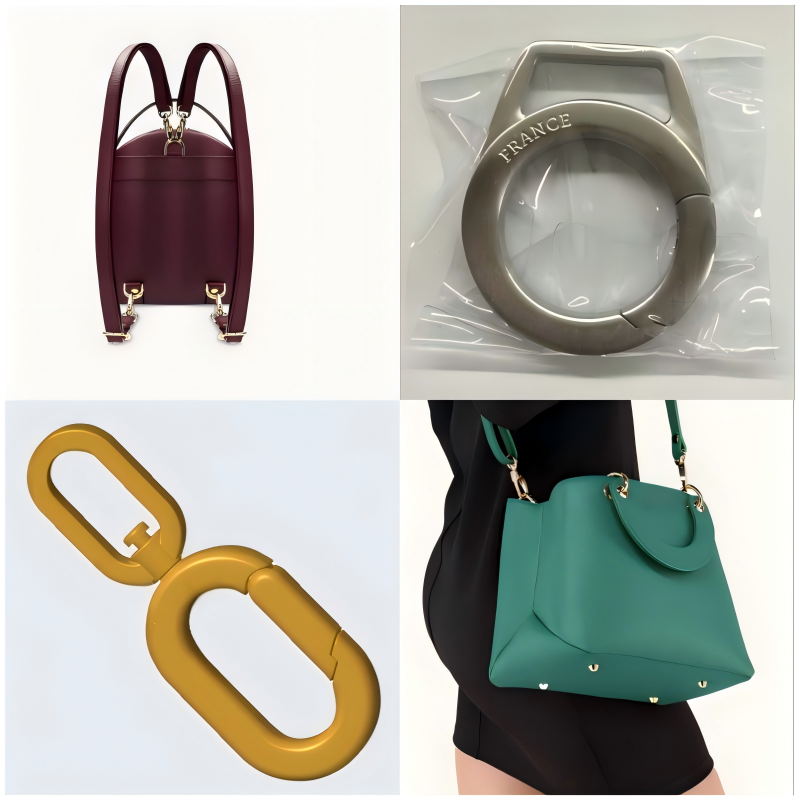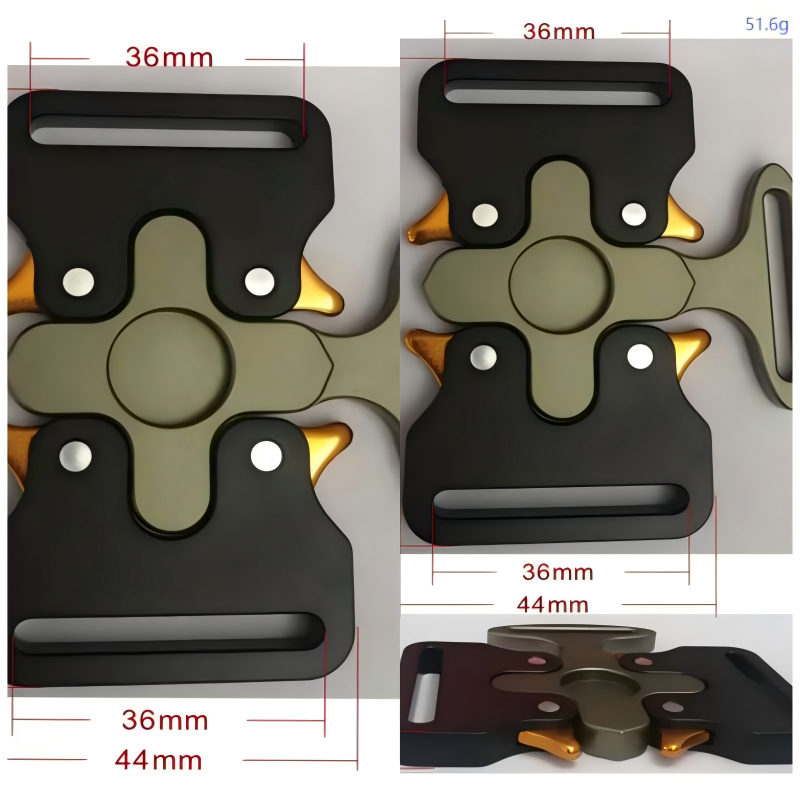How to Identify High Quality Handbag and Luggage Hardware
How to Identify High-Quality Handbag and Luggage Hardware and Avoid Inferior Imitations
Handbag and luggage hardware plays a crucial role in both functionality and aesthetics, affecting the durability, security, and overall quality of a product. However, low-quality imitations flood the market, often made from inferior materials with poor craftsmanship. To ensure consumers make informed purchasing decisions, it is essential to recognize the key indicators of high-quality hardware and avoid substandard products.
1. Material Matters: Identifying Premium vs. Inferior Metals
The base material of hardware determines its strength, longevity, and resistance to wear and corrosion. Here’s how to differentiate high-quality metals from cheap alternatives:
High-Quality Metals:
Brass: Heavy, durable, and naturally resistant to corrosion. Found in luxury handbags and premium luggage.
Stainless Steel: Strong, rust-resistant, and used in heavy-duty applications.
Zinc Alloy (with High-Quality Plating): Used in mid-range products but must have a proper protective finish.
Aluminum Alloy: Lightweight and corrosion-resistant, often used in modern, minimalist designs.
Low-Quality Metals:
Cheap Zinc or Tin Alloys: Brittle and prone to breakage.
Iron with Poor Plating: Quickly rusts, especially in humid environments.
Plastic-Coated Metal: A common sign of low-cost imitations that lack durability.
How to Check:
Weight Test: High-quality metals feel heavier and more solid in hand.
Magnet Test: Brass and stainless steel are non-magnetic, while iron-based hardware will stick to a magnet.
2. Examining the Plating and Finish
The plating process affects scratch resistance, shine, and corrosion protection. High-quality hardware undergoes multiple layers of plating to ensure long-term durability.
Premium Finishes:
Multi-layer Electroplating (Gold, Nickel, Palladium, or Rhodium): Enhances corrosion resistance and shine.
PVD Coating: Found in luxury brands, offering a superior, long-lasting finish.
Anti-Tarnish & Protective Lacquers: Prevents oxidation and discoloration.
Low-Quality Finishes:
Thin or Uneven Plating: Easily wears off, exposing base metal.
Painted or Sprayed Finishes: Chips or fades quickly.
Rough or Pitted Surfaces: Indicates poor electroplating quality.
How to Check:
Scratch Test: Lightly rub the surface—high-quality plating won’t wear off easily.
Color Consistency: Cheap hardware often has uneven or faded tones.
Shine and Reflection: High-end plating has a deep, mirror-like gloss.
3. Durability and Functionality: Strength Under Use
Premium handbag and luggage hardware should not only look good but also function smoothly and withstand daily use.
High-Quality Hardware Features:
Smooth Edges & Precision Engineering: No rough or sharp areas that could damage leather or fabric.
Heavy-Duty Clasps & Buckles: Can handle repeated stress without breaking.
Reliable Zippers & Pullers: Glide effortlessly without sticking or jamming.
Low-Quality Hardware Signs:
Thin, Flimsy, or Easily Bent Buckles: A sign of weak materials.
Loose or Wobbly Fastenings: Poorly assembled parts that will fail over time.
Sticky or Weak Zippers: Cheap, low-tolerance manufacturing leads to zipper failure.
How to Check:
Tension Test: Lightly pull on clasps and zippers—high-quality hardware won’t feel loose or weak.
Open/Close Test: Check for smooth operation without stiffness or noise.
4. Corrosion Resistance: Preventing Rust and Tarnishing
Low-quality hardware often oxidizes, tarnishes, or rusts quickly, especially in humid environments.
Premium Corrosion-Resistant Hardware:
Stainless Steel & Brass: Naturally resistant to rust.
PVD & Multi-Layer Plating: Provides superior protection against moisture and sweat.
Anodized Aluminum: Prevents oxidation and extends durability.
Poor Corrosion Resistance Signs:
Discoloration or Fading Within Weeks: Indicates thin plating or low-quality metal.
Green or Black Tarnish (on Brass): A sign of poor finishing or lack of protective coating.
Rust Spots on Iron-Based Hardware: Confirms cheap materials with inadequate protection.
How to Check:
Humidity Test: Expose the hardware to steam or water vapor—low-quality materials will show oxidation quickly.
Rub Test: Lightly rub the hardware with a soft cloth—cheap plating may leave black residue.
5. Branding and Manufacturing Standards
Reputable handbag and luggage brands invest in high-quality hardware and rigorous quality control. Low-quality imitations often lack brand markings or have inconsistent engravings.
Premium Hardware Indicators:
Engraved or Laser-Etched Branding: Luxury brands mark their hardware with clear, detailed logos.
Uniform Finishing & Polishing: No visible defects or inconsistencies.
Certifications & Material Transparency: Trusted brands disclose materials and treatments used.
Signs of Imitation Hardware:
Faint or Poorly Stamped Logos: Counterfeits often have weak or incorrect engravings.
Mismatched Hardware on a Single Bag: Indicates aftermarket or replaced parts.
Suspiciously Low Prices: High-quality hardware comes with higher manufacturing costs—extreme discounts often signal counterfeits.
How to Check:
Compare Branding Details with Official Website Listings.
Inspect Engraving Depth and Precision—Real Brands Use High-Quality Laser Engraving.
Conclusion
To avoid low-quality handbag and luggage hardware, consumers should focus on material strength, plating quality, functionality, corrosion resistance, and brand authenticity. By examining weight, finish, durability, and engraving details, buyers can distinguish between genuine high-quality products and cheap imitations.
Would you like specific recommendations for identifying luxury vs. mid-range handbag hardware?








